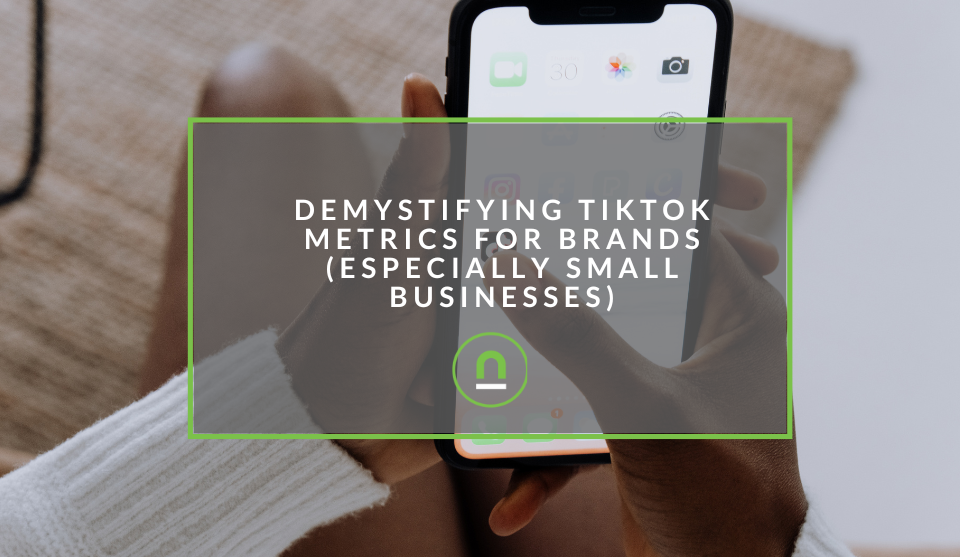Recent posts

nichemarket Advice
The Dark Side of Engagement: Why Rage Baiting is Winning
23 April 2024

Money Talks
The Intricacies of Trading Crypto vs. Forex
03 April 2024

Industry Experts
5 Effective Ways to Drive Traffic to Your Website
19 March 2024

Fur, Fins & Feathers
How To Maintain Your Dog’s Oral Hygiene At Home
14 March 2024
Popular posts
Extravaganza
Trending Music Hashtags To Get Your Posts Noticed
24 August 2018
Geek Chic
How To Fix iPhone/iPad Only Charging In Certain Positions
05 July 2020
Extravaganza
Trending Wedding Hashtags To Get Your Posts Noticed
18 September 2018
Money Talks
How To Find Coupons & Vouchers Online In South Africa
28 March 2019
Branding For The Online Start Up
12 August 2017 | 0 comments | Posted by Che Kohler in nichemarket Advice
Over the last 5 years, the internet and eCommerce have become more and more accessible to the small business market. The trend can be attributed to CMS's like Wix, Squarespace, Wordpress and Shopify (who have just hit 500 000 vendors) who have reduced the barrier to entry and given non-technical business owners the ability to compete online.
While having your site up and functioning is a victory in itself, marketing your website through various channels is the day to day grind that all have to face on the road to success, but marketing your business is more than just having people click on your ads. If you've been following our blog you would notice we concentrate more on the performance marketing side and as effective as it is, we can't disregard the impact of brand and improved branding.
How small businesses can approach branding
As an independent venture, it is difficult to live without marketing your goods and services, almost impossible for most who don't have a strong referral network to rely on. Getting complete strangers to notice, interact and eventually purchase from you is a tricky task for start-ups. Many small business owners look at established firms their field and think if they can do it at scale, why can't I?
While it's great to be ambitious, you need to set realistic goals and you can’t base your growth on huge businesses in your market. Firstly, you don't have the cash, assets, skilled staff or even an opportunity to concentrate on marketing and secondly, you don't have the brand recognition they've to build and amplified through their marketing efforts.
Turn your opportunity into a strength
Yet, what can seem like a disadvantage can be your greatest asset and how you can get the ball rolling. When businesses scale up they need to automate many of their processes for optimisation and efficiency sake, many clients don't like the feeling of being just another purchase invoice and want a personal relationship with their service provider.
This is where the startup can offer bespoke services and personalised customer service and messaging that wouldn't be possible at scale. Start-ups need to romance the customer from first engagement to purchase, to post purchase to repeat purchase.
This kind of relationship building not only helps you build a strong loyal customer base and generate revenue but build a brand that stands for something, a brand that appeals to clients of a specific niche. While this does sound great in theory, how do you put this into practice? By covering the following customer touch points.
Building Trust
The first major hurdle that online start-ups need to overcome is the legitimacy factor. People aren't easily convinced to buy from sites they've never heard of unless its a word of mouth referral. The web is still seen by many as a volatile place on the grounds that there are such a large number of stories of individuals being “conned” or getting items that aren’t as publicized.
Marketing fabricates trust by making your organization significant, but building real trust with clients is one thing a solid brand can do. To build trust online you will need to cover a few elements potential customers look for when gauging the legitimacy of the site.
A few trust factors you should cover
- Meet the team - Put your face and name up, vouch for the business, show there are real people behind the site
- Testimonials - Put up responses of clients you've serviced in the past
- Ratings and reviews from 3rd party sites - Make sure you have links to 3rd party review sites like Facebook, Google, Zomato if applicable vouching for your site.
- Work with online media outlets and have content about your business published and showcase it on your site
Creating a positive reputation
Building trust and gaining notoriety is a continuous procedure that is made up of the considerable number of interactions between your business and their clients. This is where you can set yourself apart from competitors in the way you remunerate client faithfulness to how you react to online networking informing and it is significant.
91% of customers say that they will probably buy from a brand in the event that they see it as “legitimate” and that can even support buying when they weren’t looking for the product or service.
Creating a positive reputation is all about how you treat the client, as a start-up you have the luxury of validating each and every customer interaction with a personal touch. Always try to go the extra mile, assist where you can, answer their queries in a prompt and helpful fashion.
Ask them questions they would not have thought to consider, like are you buying this for a friend, what is their favourite colour and try and customise your product or service experience to the client's wishes. These subtle touches not only go a long way with the customer but will normally generate positive reviews and amplification from happy customers.
Leads and sales
Obviously, a great brand can assemble your leads, sales and even deals with suppliers. By building a loyal following and building a connection with them you can use this relationship to your advantage in a number of ways. Connecting with your client base you can solicit important data like purchase behaviour, interests and average spending.
Armed with that data you can narrow down the supplier products or deals you know would move quickly. Giving you better bargaining power with the supplier who is keen to move their stock while also giving clients more of what they want. Having a brand bring you more of what you want without having to ask for it can transform leads into sales overnight.
Giving a purchase that personal touch is also a great way to romance the customer. A note in the package, a post-purchase email or call to check on how happy they are with the product, even a recommendation or notification of similar items can keep your client's purchases exclusive to you.
Representative connection
As I mentioned before putting a face to the business and representation is important to building a brand. Don't believe me? Then why do brands spend millions every year on celebrity and sports icon endorsement? Because it works. Unfortunately for a start-up, you don't have the luxury of bringing in big names to flog your product however influencer marketing has grown in strength since the introduction of social media.
Having a company representative can mean something as simple as a refer a friend program, outreach with bloggers, partnerships with local vendors and businesses or event organisers or even a success story of the average joe you helped with your product or service.
Building a business means building a brand
Building a brand not only brings in sales but bring in sales at a reduced ROI. The trust you build up with your customer base improves conversion rate while also influencing the time it takes to complete a first time purchase and repeat purchase, making your advertising efforts even more effective.
Keep in mind your brand is not just your advertising efforts, but also in customer engagement and interaction and you'll be well on your way to building a successful start-up.
Contact us
If you want to know more about online branding don’t be shy we’re happy to assist. Simply contact us here
You might also like
The Intricacies of Trading Crypto vs. Forex
03 April 2024
Posted by Josh Welman in Money Talks
A deep dive into the differences between the forex and cryptocurrency markets, along with the nuances you have to consider if you trade these two ass...
Read moreDemystifying TikTok Metrics for Brands (Especially Small Businesses)
13 March 2024
Posted by Che Kohler in nichemarket Advice
A guide to TikTok Metrics and some much-needed context behind them so brands and businesses do not end up overpaying for top-of-funnel vanity metrics...
Read more{{comment.sUserName}}
{{comment.iDayLastEdit}} day ago
{{comment.iDayLastEdit}} days ago
 {{blogcategory.sCategoryName}}
{{blogcategory.sCategoryName}}

